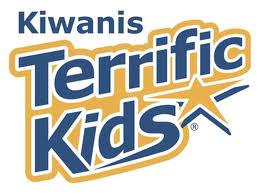Young Children Priority One - Imagination Library
Julie Beebe - Rehoboth Beach
(submitted by Rosemary Cummings)
Do you ever think that it is silly to read to an infant? What does an infant really understand? More than you might think. Just holding the baby on your lap while you page through a book gives the child security and love, but it also is starting that child on their reading journey. I found this article from Parents magazine © 2008 on tips for the best way to get the youngest children started on that journey.
I Love Story time: The Best Way to Read to Your Toddler
By: Leslie Garisto Pfaff (2008)
Reading to your toddler is one of the best ways to boost language skills. Here are 12 tips to help make sure your toddler gets a head start on reading.
Give your one-year-old a book, and you never know what she will do with it: chew on it, bang it on the table, wear it on her head, or - surprise - sit down and start thumbing through it. By twelve months, most kids are book-ready. They have the fine motor skills it takes to turn pages and the visual ability to understand detailed illustrations. Even if they are barely speaking, they can actually understand dozens of words.
"Reading to your toddler is one of the best ways to boost language skills," says Andrea Grimaldi, a senior program officer at the National Institute for Literacy. When you read, you are teaching her about the sounds and the structure of language, and helping expand her vocabulary. "Even the most basic children's books contain three times as many unique words as your child is likely to hear in everyday conversation," explains Caroline Blakemore, coauthor of Baby Read-Aloud Basics.
On top of that, reading to your child at an early age also improves her memory and attention span. Research shows a love of books is the number-one determinant of future academic success. So, make sure your toddler gets a head start by following these simple steps.
1. Add it to your routine. Set aside regular times to read together every day. "You should aim for twenty to thirty minutes a day, in ten-minute intervals," says Sharen Hausmann, executive director of Smart Start, the early-childhood division of The United Way of Metropolitan Atlanta.
2. Find a soothing setting. Since toddlers are easily distracted, pick a quiet, comfortable spot for reading-and a time when you do not feel rushed. "Make sure your spouse and older kids know they shouldn't interrupt you," says Mary Eames Ucci, director of the Wellesley College Child Study Center.
3. Vary your reading list. For toddlers, reading sparks their imagination, satisfies their curiosity, and makes them feel at ease about new experiences, like taking a family trip or meeting a strange animal. The more types of books your child is exposed to, the more he will learn.
4. Visit the library. This will give her the chance to see other little readers enjoying themselves, too. While she may be too young to pick out books on her own, try to involve her in the process ("Here's a book about a puppy. Would you like to read it?").
5. Choose carefully. Look for titles that reflect your child's everyday experiences. In general, toddlers between twelve and eighteen months tend to like books that ask questions or feature simple rhymes, while those closer to age two can appreciate more complex rhyme schemes and story lines that involve basic emotions, like happiness and anger.
6. Offer a selection. Pull out several books at a time and let your child pick one or two to read. He will be more excited if he is actively involved in the decision.
7. Be patient. Do not be surprised if your child wants to read the same book over and over again. Toddlers learn through repetition. So bear with it, and try to add in a new book between readings of her current favorite.
8. Keep it fun. To hold your child's attention, dramatize the story by raising and lowering your volume, varying the pace, and creating a unique voice for each character. "Speak slowly, exaggerate vowel sounds, and enunciate each word," says Blakemore. You can even mix it up by having your spouse read it with you.
9. Ask questions. Doing so keeps your child involved in the story and teaches problem-solving skills. Have your child look for things that are - and are not - mentioned in the text: "Do you see the sun?" "Where's the bunny?"
10. Link words to the pictures. Reading to your toddler teaches him about the written word. Reinforce this lesson by pointing to a word as you say it and then pointing to the corresponding illustration. "Help your child understand that what you're saying and what he's seeing go together," says Hausmann.
11. Let her touch. Give your child a chance to hold the book, and show her how to turn the pages. You will not only be teaching her the basic mechanics of reading, but you will also be enriching her mind. "When kids engage in physical activity while reading, they create more connections in the brain," says Ucci.
12. Coax a reluctant reader. If your child quickly loses patience with reading, get creative. Experiment with different kinds of books to see what he likes. Does he pick books that rhyme? Stories about toddlers just like him. If he gets antsy, do not force it: take a break, or try reading to him just before naps or bedtime, when he will be most receptive to sitting and listening. With a little persistence and ingenuity, you will teach him that books are fun - an attitude that will serve him well now and in the future.
























